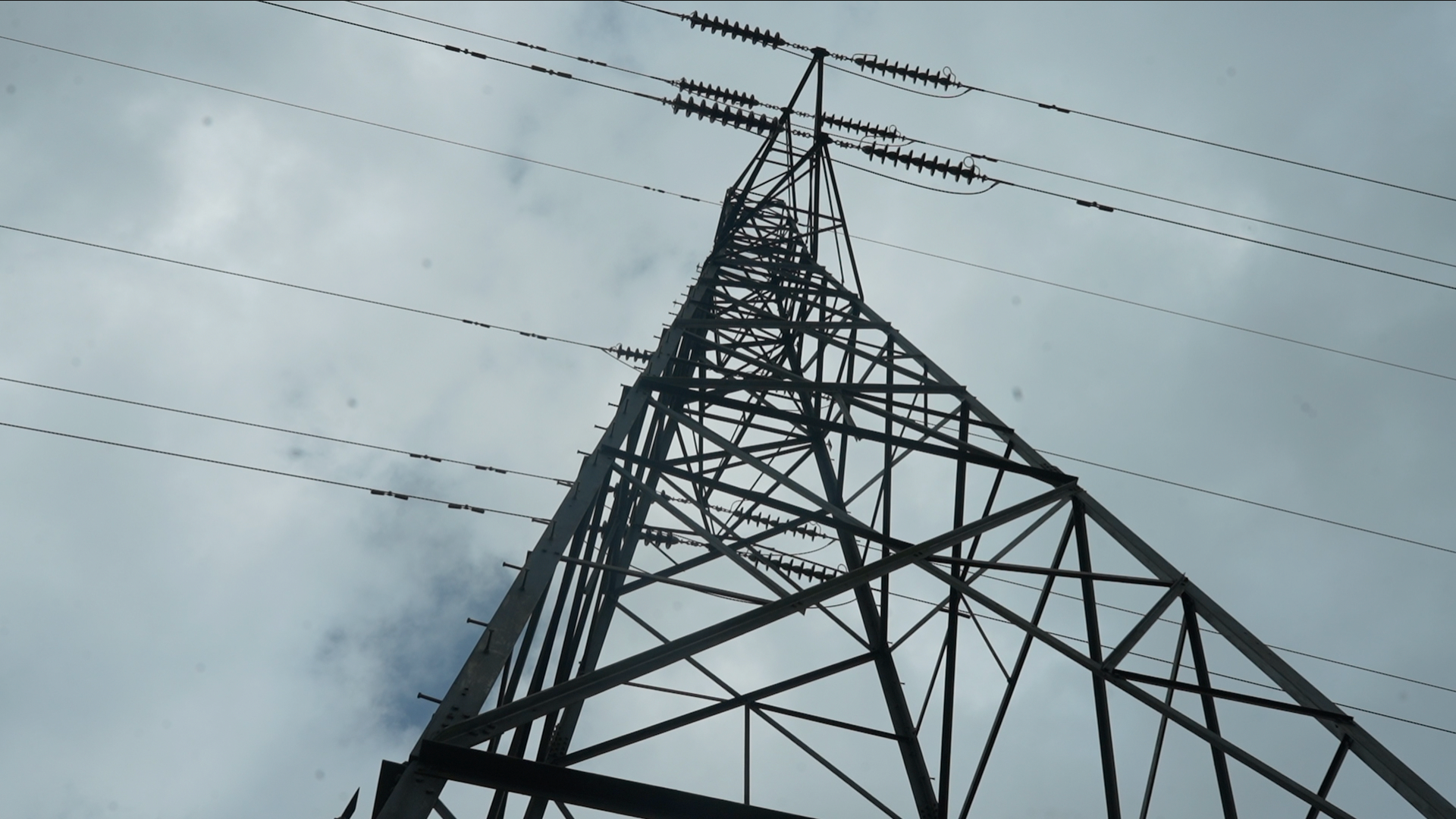Council calls for proof of pylon alternative costs
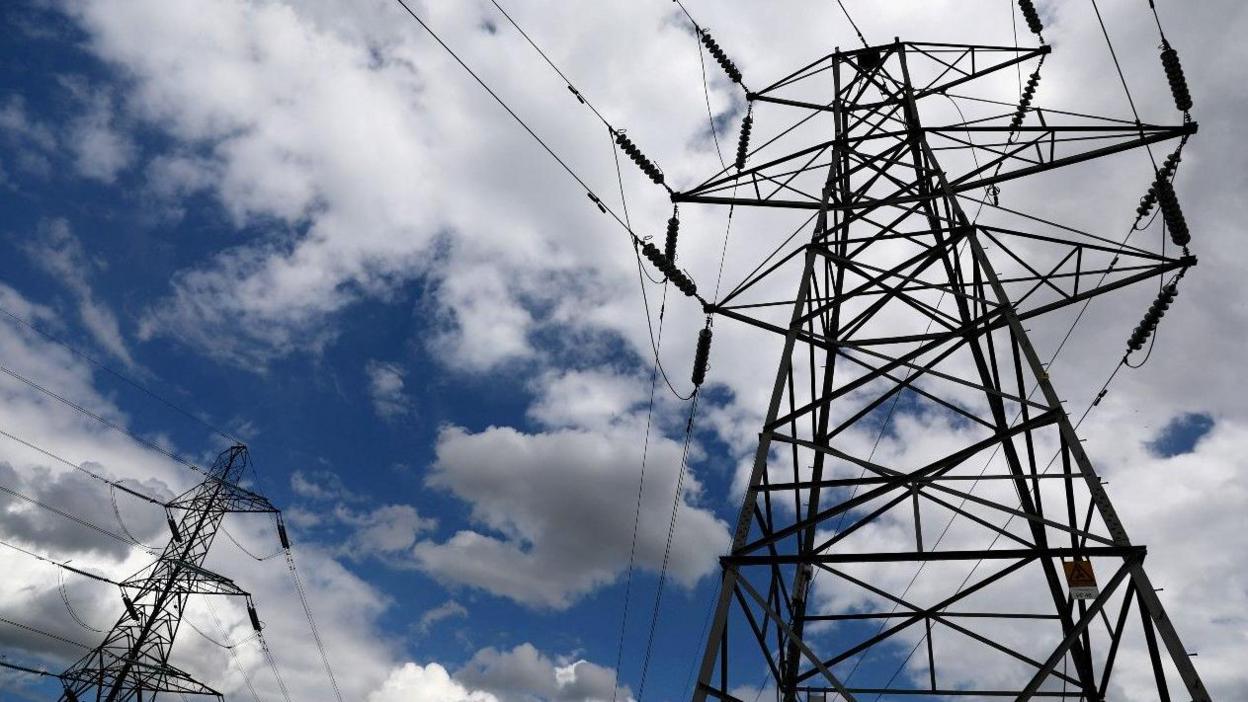
Pylons form part of plans to decarbonise the electricity grid
- Published
Council bosses are calling on National Grid to provide evidence that building a new network of pylons across Lincolnshire was cheaper than installing an underground cable.
The firm previously announced that the pylons were needed to transport electricity 87 miles (140km) between Grimsby and Walpole in Norfolk.
The pylons would cost about £1bn compared with £6.5bn to put them underground and £4.3bn for an offshore subsea cable, a spokesperson said.
However, Lincolnshire County Council leader Martin Hill said he "didn't believe" the figures.
'Bring the power'
Following a meeting of the council's executive on Tuesday, Hill said National Grid had refused to share how it had arrived at its conclusion.
“National Grid and the government are claiming that it is actually cheaper to put all these pylons up than laying a cable on the seabed, which is what they have done to date.
"Frankly, I don’t believe that,” he said.
Hill said the council was now at the stage "where we are going to write a formal legal letter to them to say, look, this is a very big issue for Lincolnshire - we need you to justify these claims".
“At the moment, they are just making these claims without any evidence to back it up," he said.
Hill said everybody accepted the need to "bring the power in", but argued that "putting it on the seabed would be better".
"Most of this power isn’t for Lincolnshire - it’s all going down south where they have high demand," he added.

Council leader Martin Hill is calling on National Grid to provide evidence over claims that building a new network of pylons was cheaper than installing an underground cable
Prime Minister Sir Keir Starmer recently said plans for overground pylons would need to go ahead to secure cheaper electricity.
National Grid said it considers "all technology options" but must offer value for money while meeting green energy targets.
“At our public consultation earlier this year, we shared costs for the Grimsby to Walpole project," a spokesperson said.
The costs for an underground cable alternative, or an offshore cable, were "significantly" higher than the proposed onshore option," they added.
The firm said the government’s National Policy Statement confirmed that overhead lines should be the starting presumption for new electricity networks, except at locations of National Landscape (formerly AONB), according to the Local Democracy Reporting Service.
Hill said he did not rule out further legal action against National Grid, potentially alongside the council’s counterparts in Essex, Norfolk, and Sussex, which he said shared a “common issue”.
“I think we are going to have to spend some money looking at legal options because, at the moment, we are just not satisfied that this process is being done properly or legally, he added.
Listen to highlights from Lincolnshire on BBC Sounds, watch the latest episode of Look North or tell us about a story you think we should be covering here, external.
Related topics
- Published5 September 2024
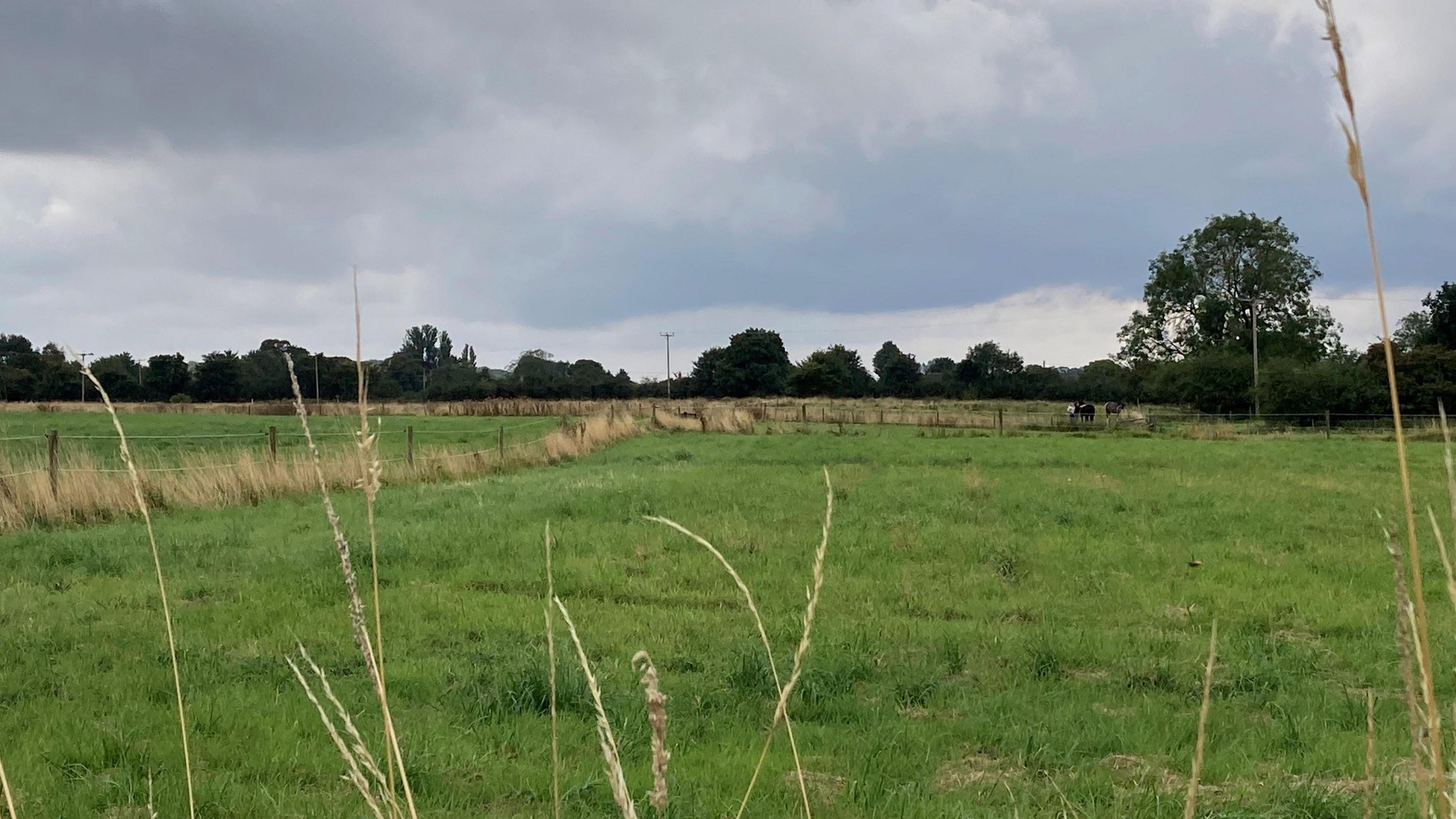
- Published7 September 2024
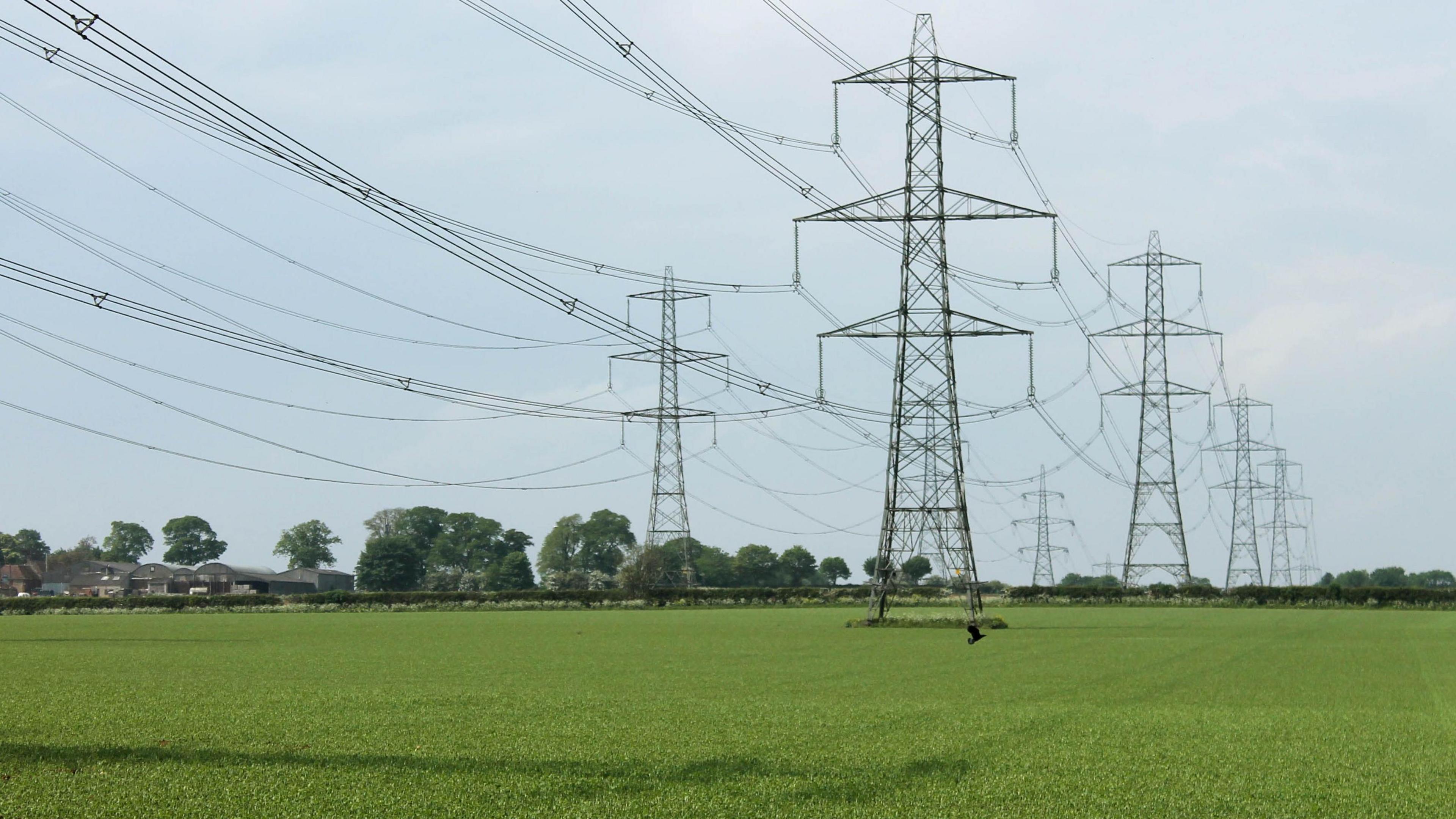
- Published16 February 2024
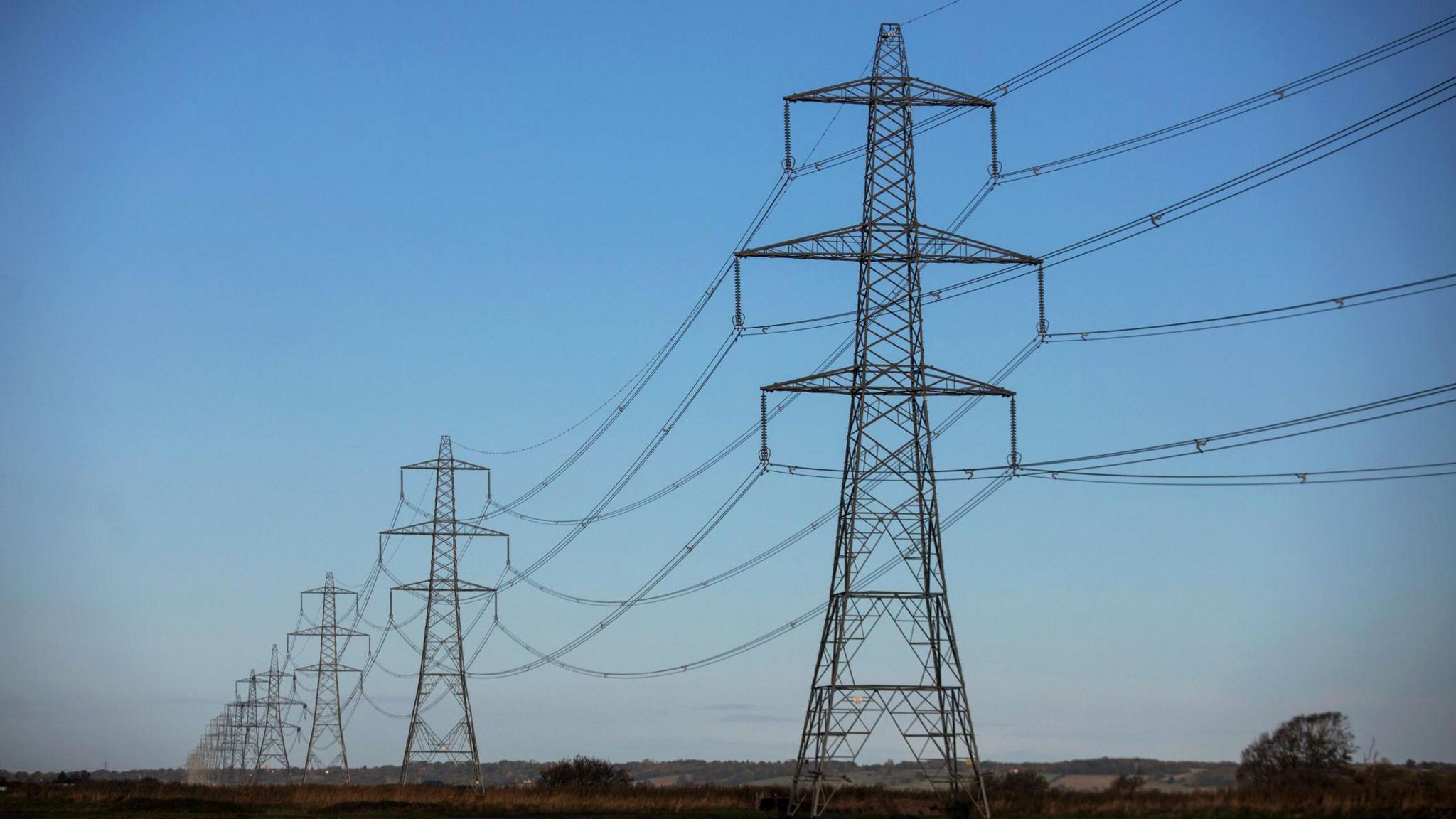
- Published26 September 2024
